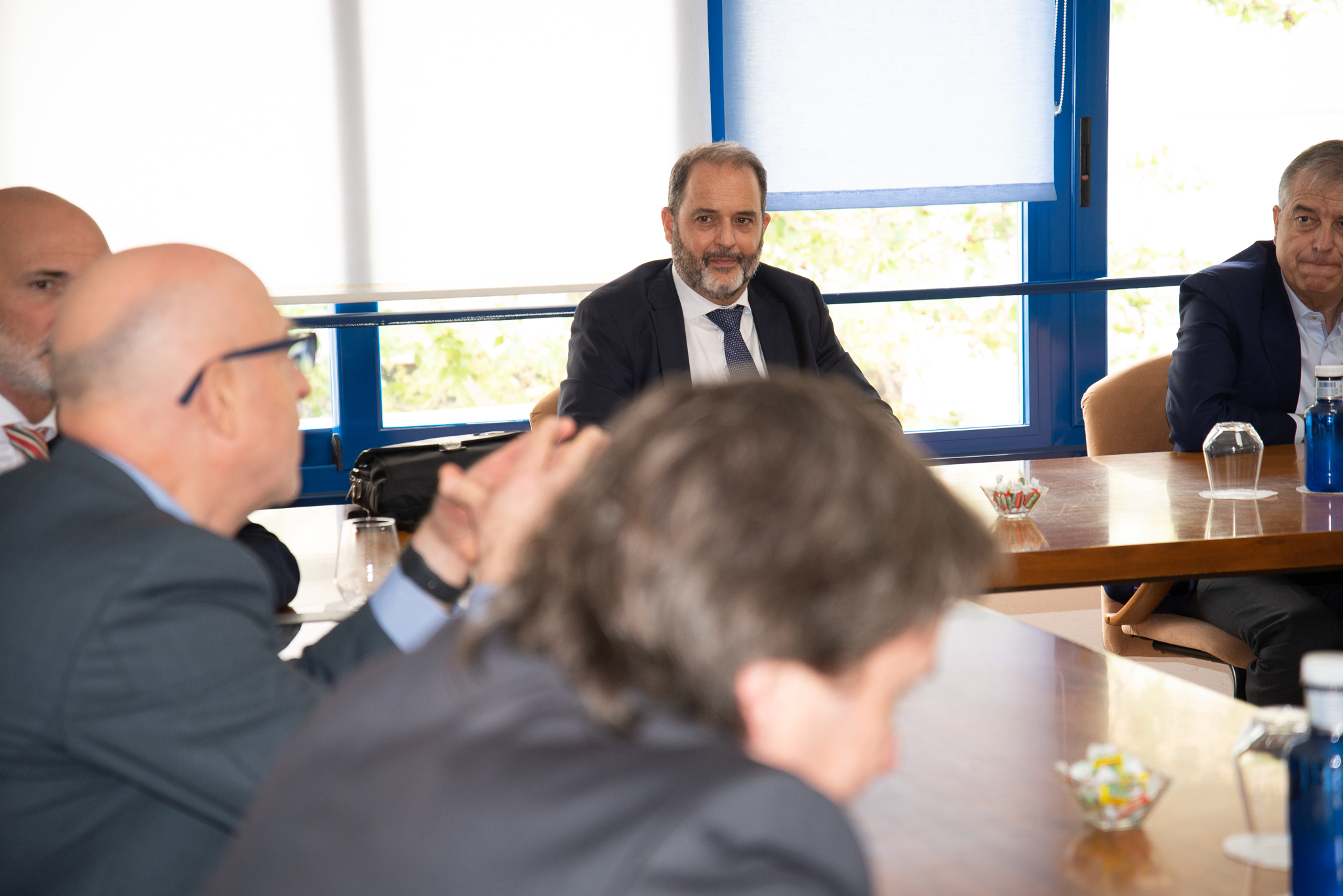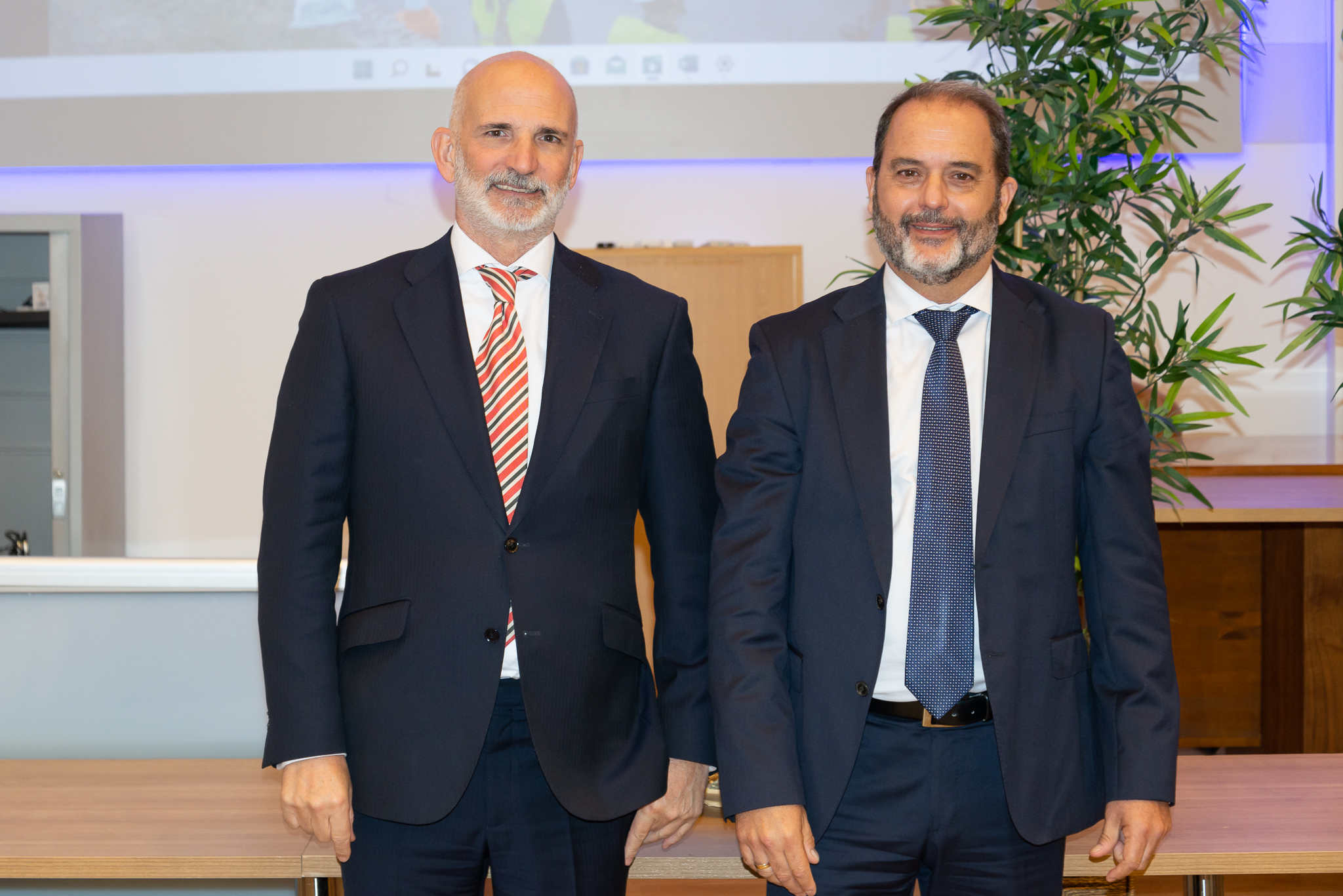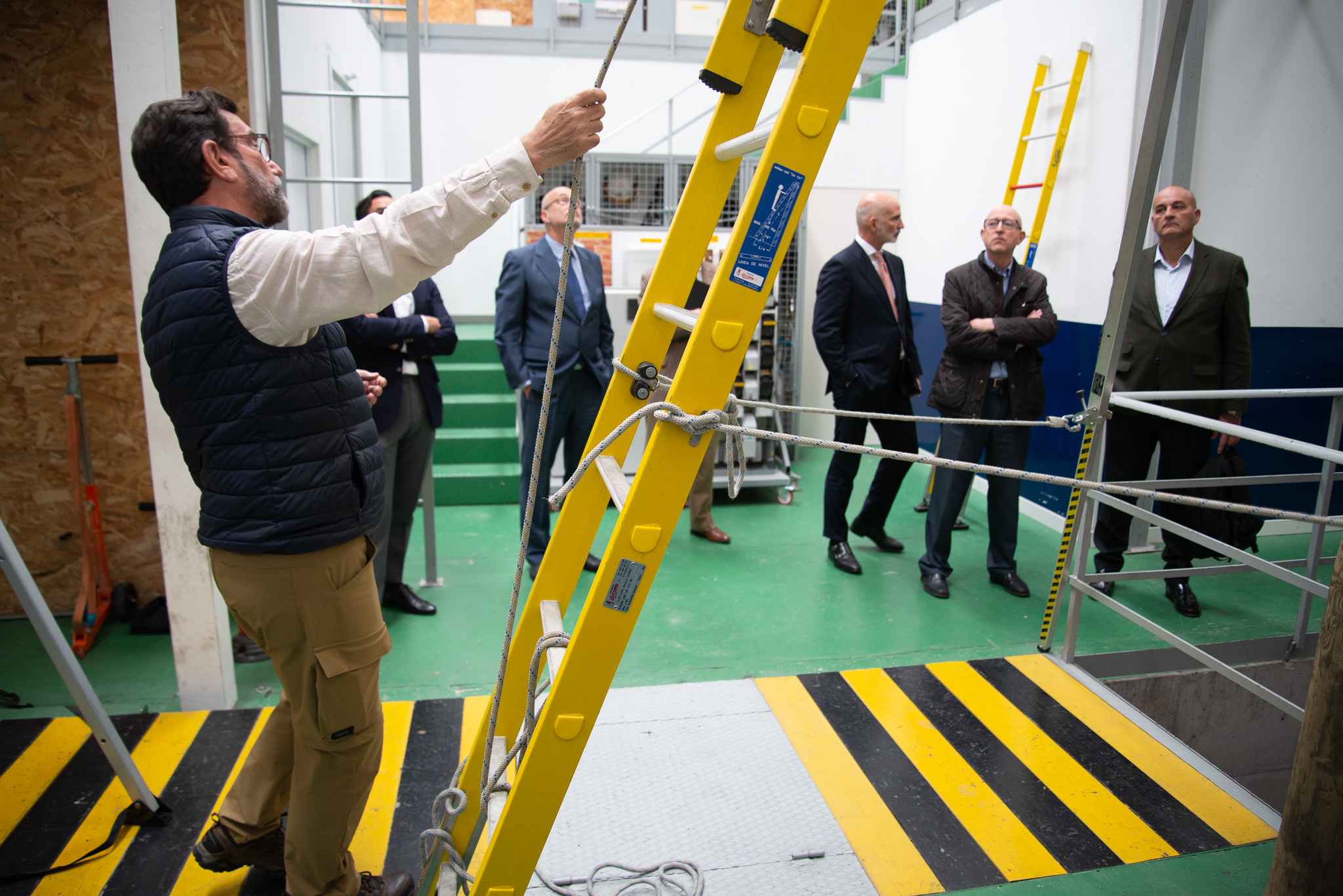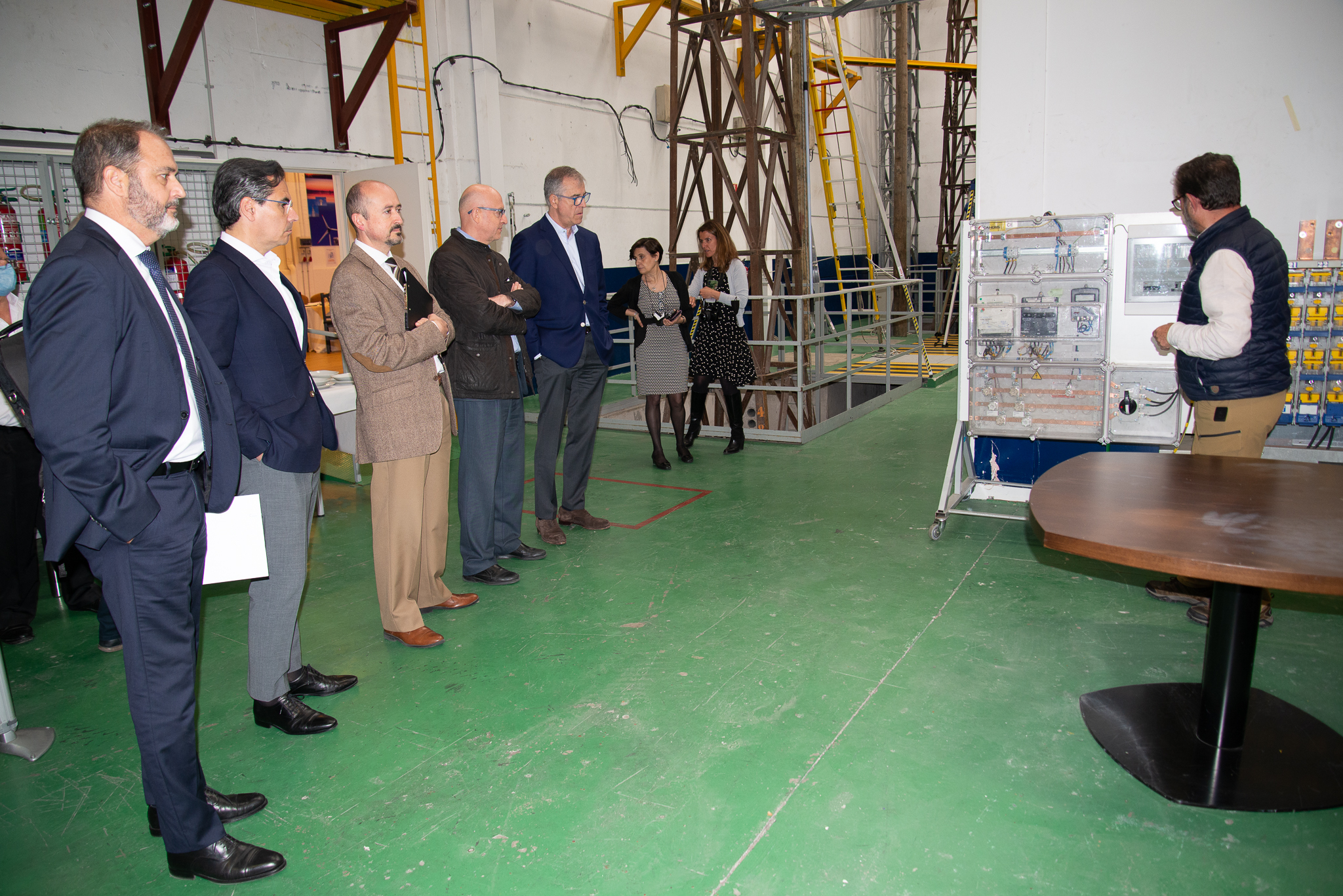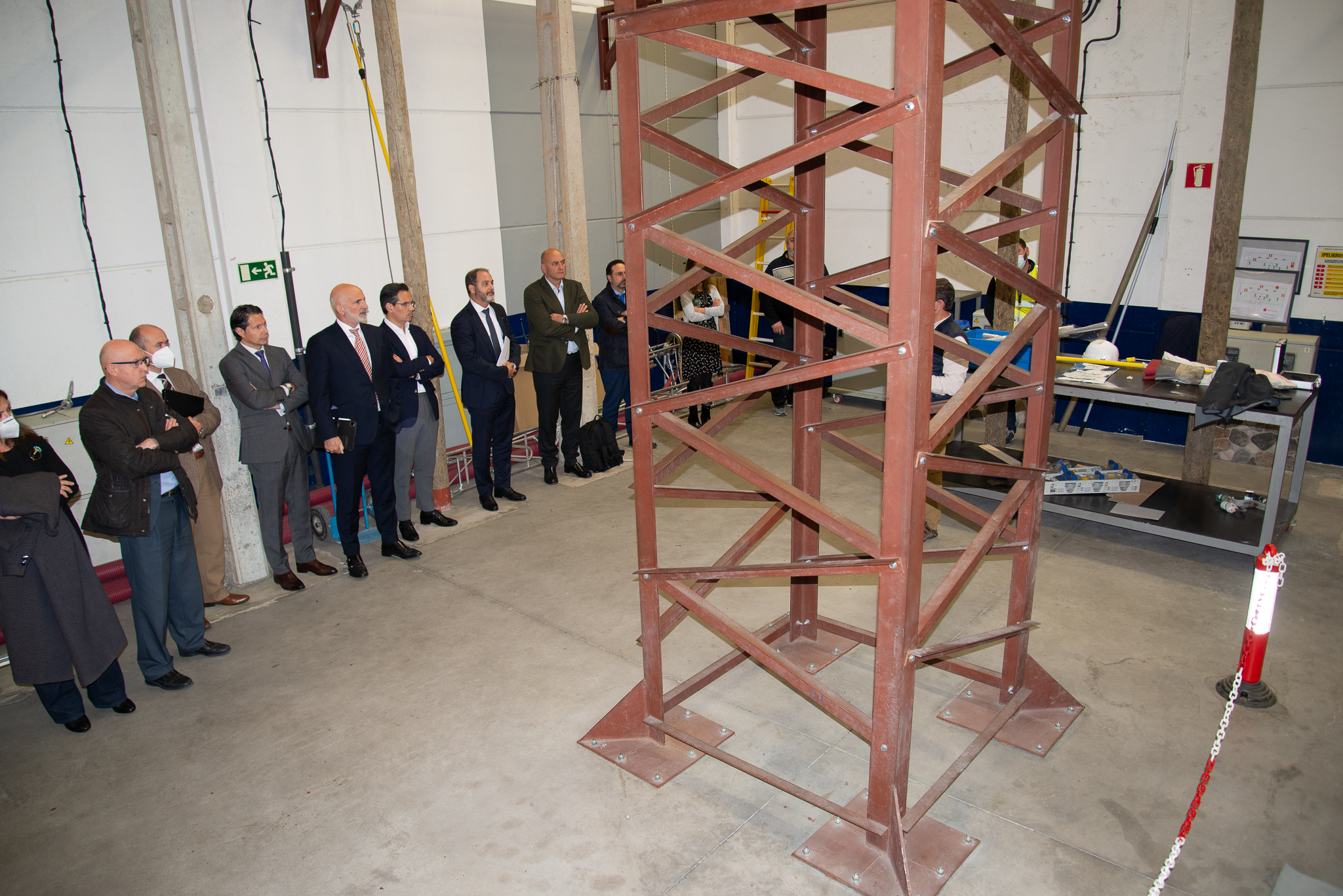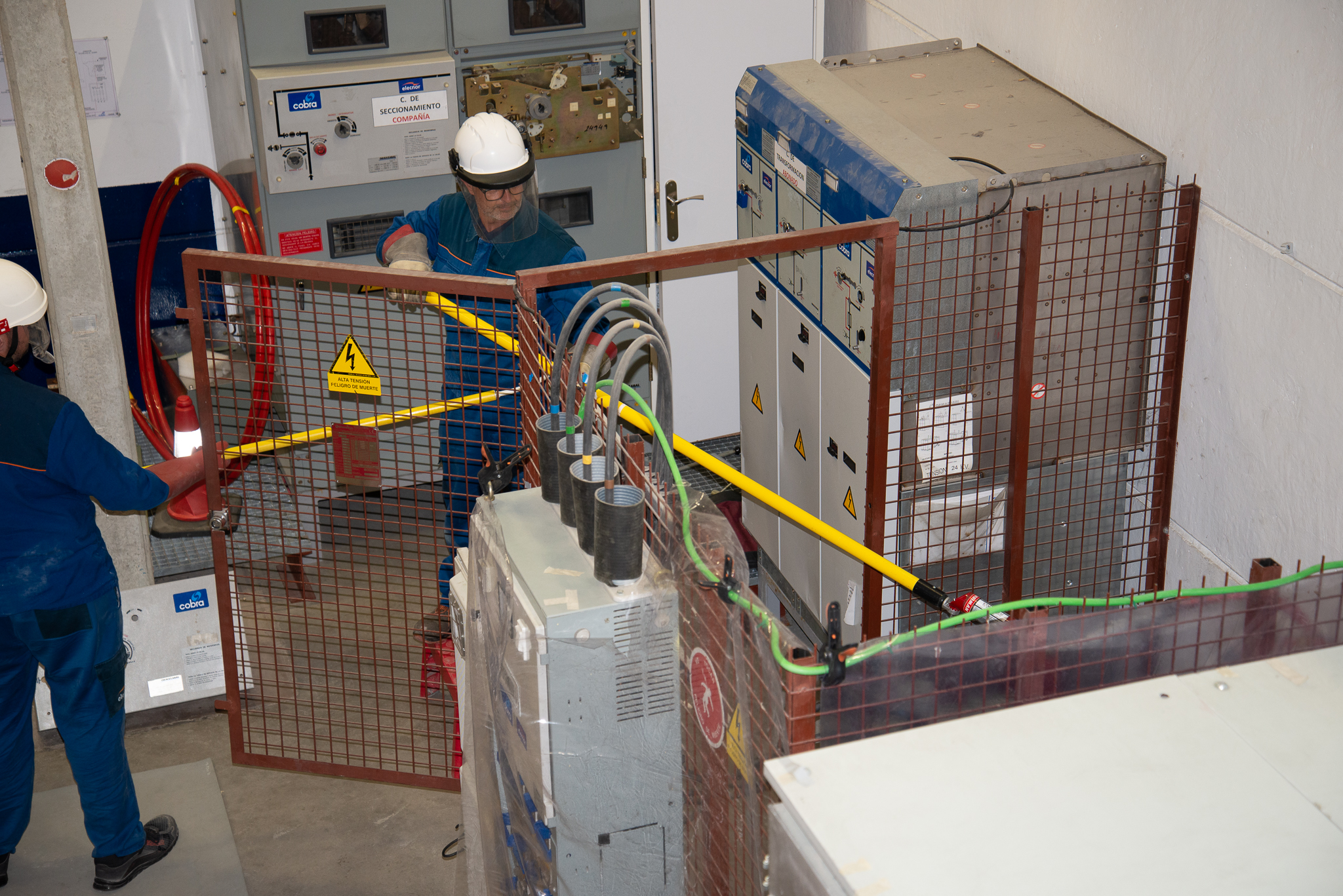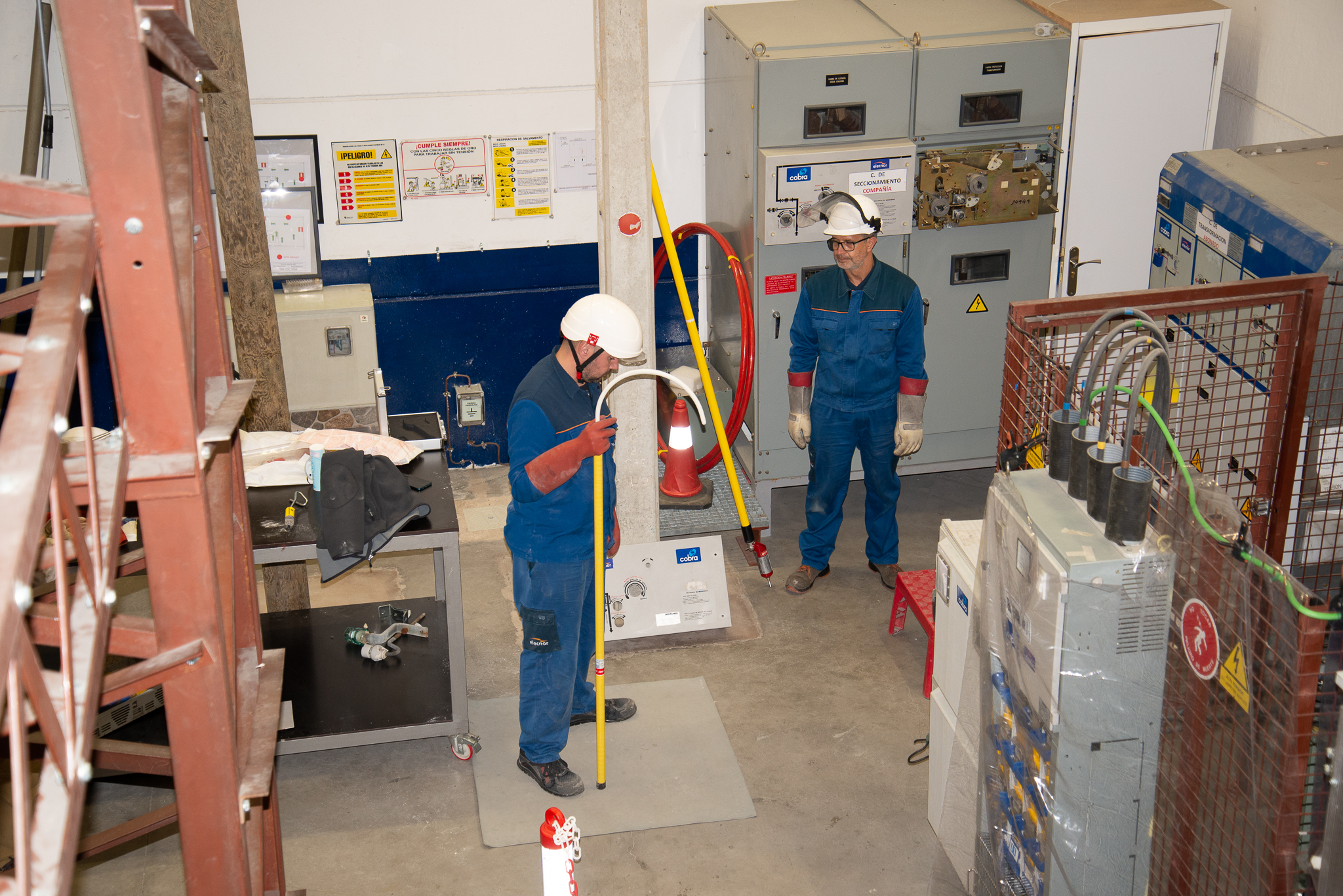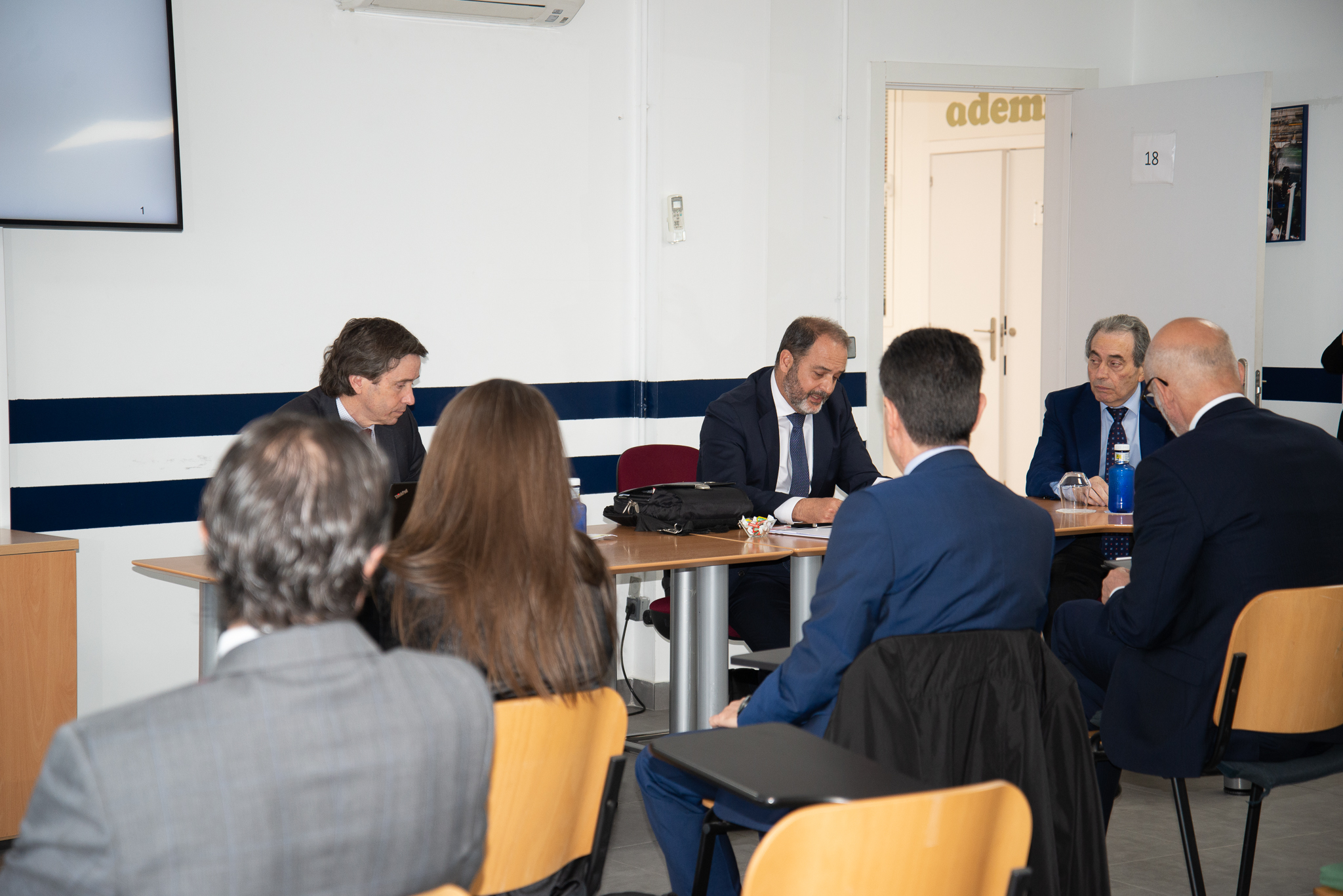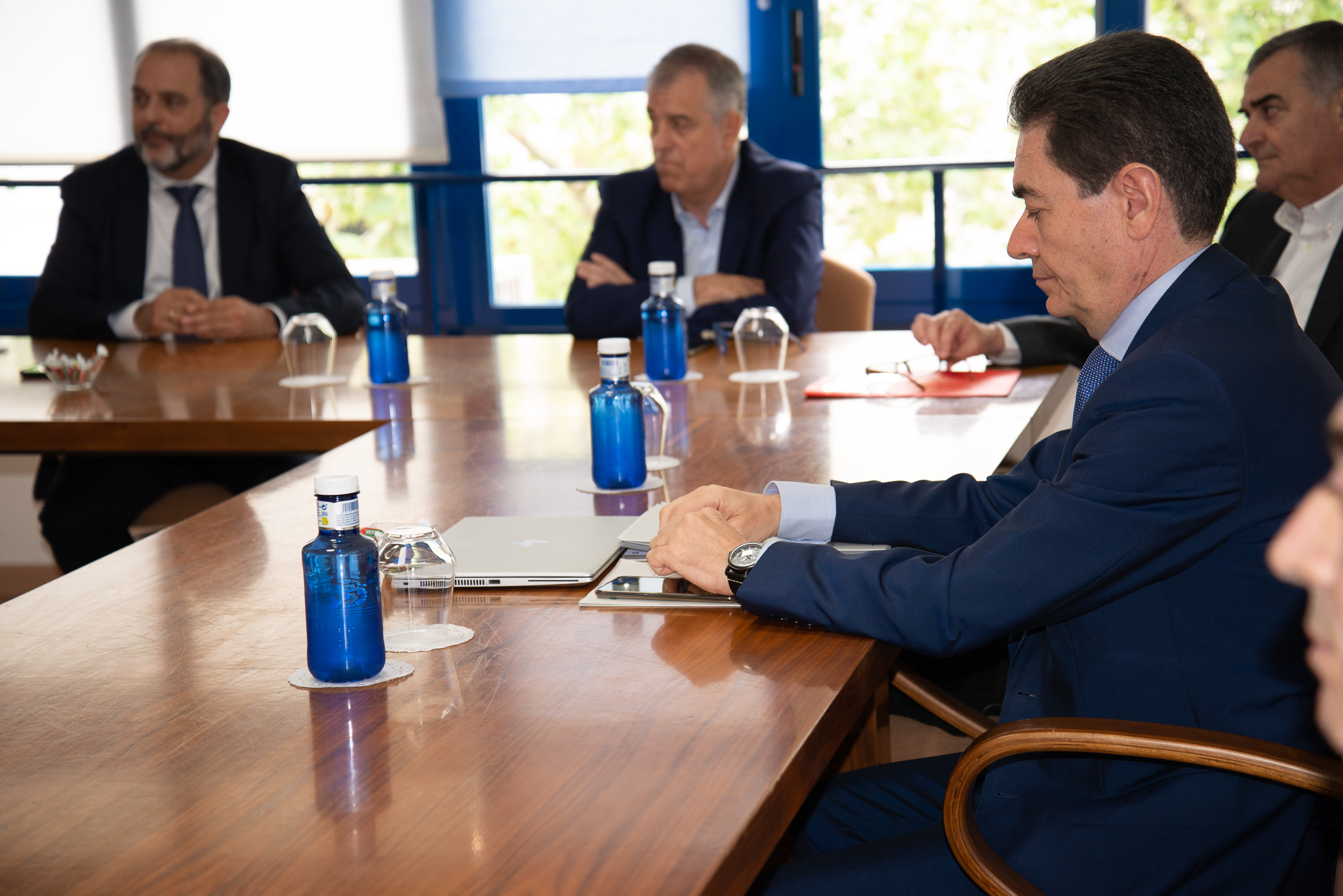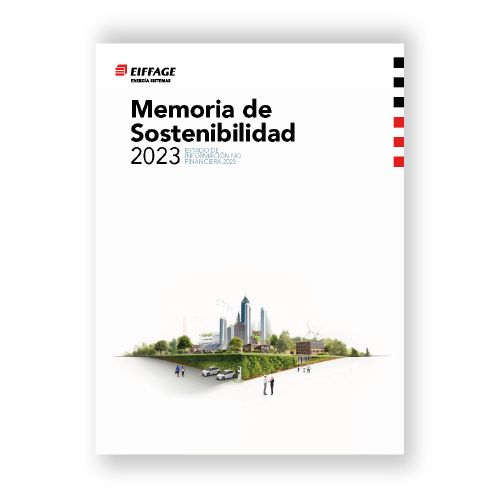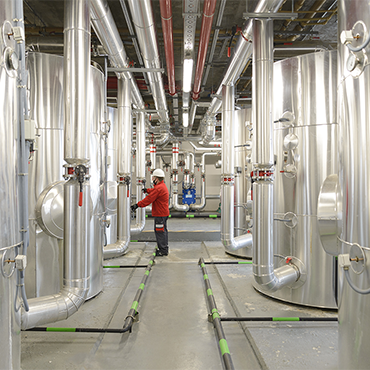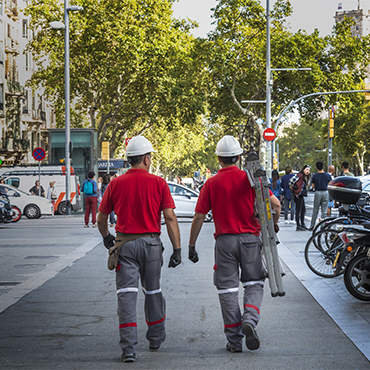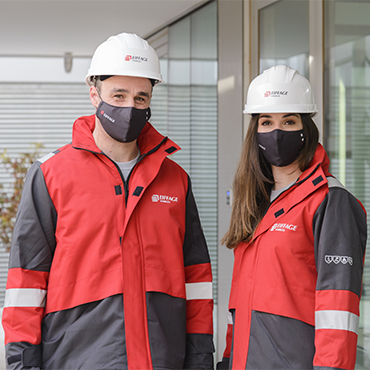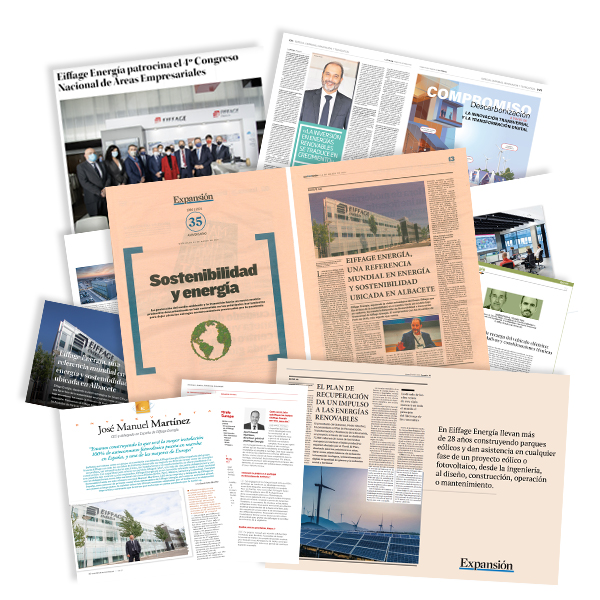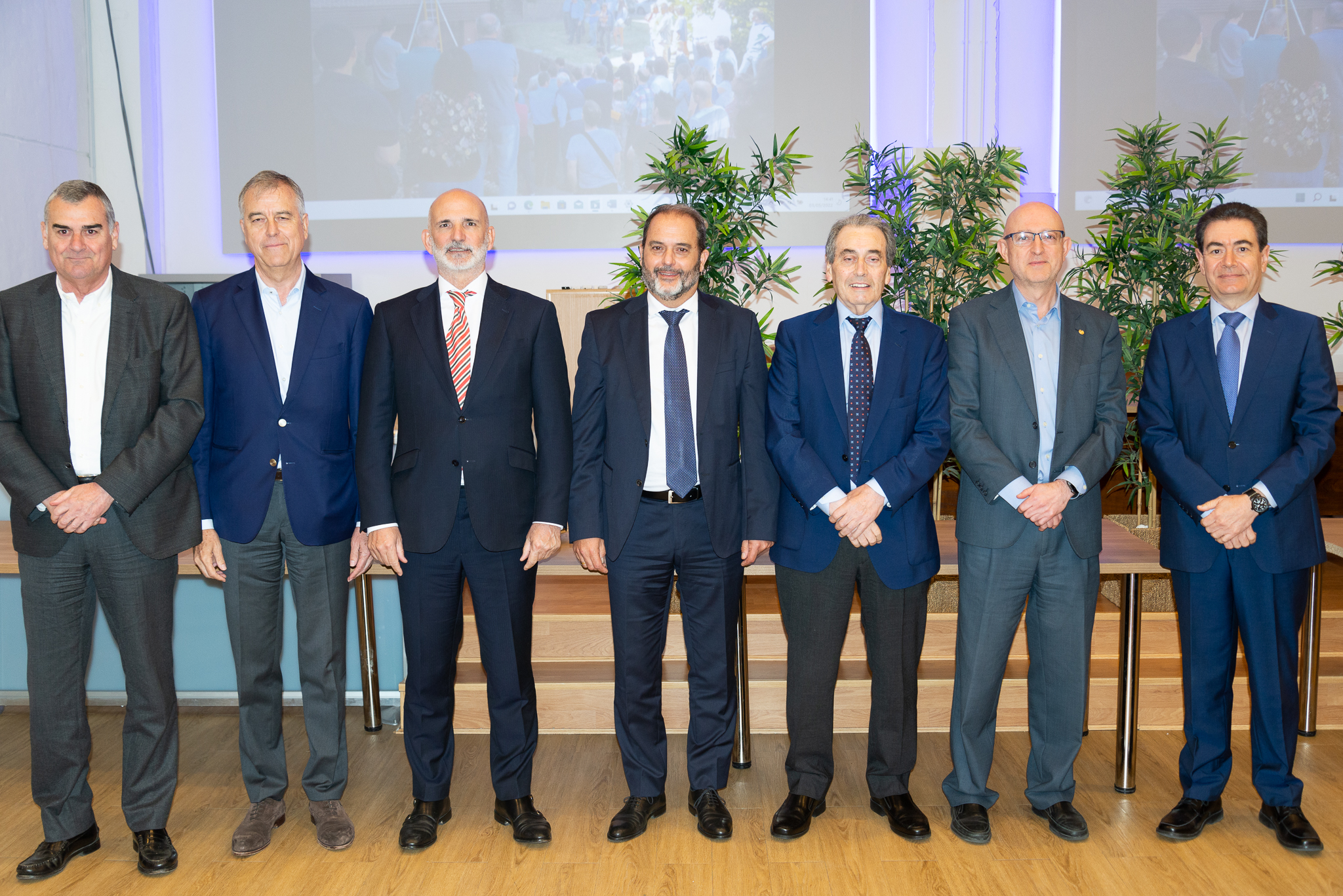ADEMI. The CEO of Eiffage Energía and director of Eiffage in Spain, José Manuel Martínez, has for the first time since his appointment as president, chaired the General Meeting of ADEMI. A meeting at which issues affecting the sector were reviewed. Issues such as labour reform; or the threat of interventionism on renewable energies made worse by the war in Ukraine.
ADEMI represents 90% of the sector in terms of turnover, with 36 member companies. The sector’s turnover is over 18 billion euros, representing 1.6% of Spain’s GDP. More than 70% of this turnover is the result of the activity of ADEMI companies on foreign markets.
The association generates more than 70,000 direct and a further 100,000 indirect jobs on the domestic market.
In this sense, the president of ADEMI highlighted that “in 2021 ADEMI trained 14,000 people. We need to invest in training. It is the best investment, and even more so at times like these”.
Training and prevention are fundamental cornerstones for the association. This is demonstrated by the plethora of events that have been organised to promote worker safety in the sector. For example, the various conferences and congresses on occupational health and safety, in partnership with different entities such as Aga, Sedigas and Telefónica; working breakfasts organised in partnership with KPMG; or participation in Sicur at the beginning of the year, among many others.
Benchmark in the energy sector in Spain
ADEMI is a heavyweight association in the Spanish economy, the benchmark for the energy sector in Spain. “We are made up of a core of companies with the technological capacity to guide Spanish society towards a new economic, industrial and energy model. And we do this by developing all processes linked to innovation, digitalisation and sustainability”, stated Martínez.
Interventionism on renewable energies
In 2021 all the synergy was focused on solving the difficulties caused by COVID-19. “Our goal now is to overcome Spain’s energy dependence, which has been worsened by Russia’s intervention in Ukraine. ADEMI companies are in a position to make this energy transition. We have the technological capacity to implement it”.
In this regard, Martínez explained that he has already publicly expressed the association’s concern about the threat to renewable energies posed by interventionism. “If the unity of the electricity market is broken, or if confiscatory taxation is imposed, orders from renewable energy companies to contractors will come to a standstill”.
European energy independence can only be achieved through a commitment to renewable energies and the improvement of electricity distribution and transmission infrastructures. This commitment that was already being contemplated in the global context of the fight against climate change. However, the situation caused by the conflict means that the measures to be taken in this regard must be implemented as soon as possible in order to achieve energy self-sufficiency.
According to the president of ADEMI, it is essential that we follow the path of decarbonisation, in a manner that is sustainable and profitable, and that therefore can be exported to the rest of the world over time.
“Europe accounts for 9% of global emissions and is the only power in the world that provides 100% to support the cost of investments in decarbonisation”, emphasised Martínez, stating that “we have to be leaders and an example to follow in the energy transition process. “We will pay more now so that we can become more independent and competitive in the future”.
He recalled that when investment in nuclear was very expensive and today nuclear energy is very competitive. The same is already true for photovoltaics and wind power. “Investing in technology increases our added value. Think of how commodity-producing countries are “poor countries”, while those that invest in technology are rich”.
Runaway inflation
Jose Manuel Martínez stated that we are living in a time of runaway inflation . “Inflation is a structural problem, not a circumstantial one. This can be seen in underlying inflation. Economic development has to be in line with the weight of the euro in the world”. Along these lines, he explained that:
- We must ensure that the euro prospers as the world’s reserve currency, following in the wake of the dollar.
- There is no such thing as energy self-sufficiency. It is not possible to be energy independent. We live in an electrically interconnected world, so we must: – Increase the diversification of generation sources, in terms of type and quantity. Improve the energy MIX in each of our countries. – Encourage cooperation between countries by improving and boosting interconnection networks. -Technology and added value (patents that set us apart from those who produce things), i.e., investing more in R&D+i.
- This is essential because the other half of the world, that of the conventional economic-energy model, expects Europe to fail in the energy transition. Therefore, we will not be able to compete with those producing conventional energy resources.
We have a very strong currency which is the world’s economic reserve. Europe accounts for 25% of the world’s GDP. Regulation needs to be improved. “It needs to be integrated, facilitating and part of the solution rather than part of the problem: investments, hence economic activity in our sector, cannot be stopped”, he added.
Labour reform
On another issue of concern in the sector, labour reform, “what we are demanding is that the same exception enjoyed by the construction sector be applied to us, as energy infrastructure construction companies, allowing us to maintain contracts for works and services. We are heavyweights in the sector and this should make us strong”.
In this context, Martínez stated that companies in the sector should have the possibility to contract on the basis of existing works. It should be the case that if the project ends and the employee does not wish to be relocated to another project, or if this is not possible because the company has no more projects, the employment contract can be terminated. Just like the option given in the construction sector, with the “permanent project contract”.
“We often have requests to hire labour from the local areas around project sites. This local workforce is normally reluctant to relocate to places other than where they live”. In these cases referred to by ADEMI’s president, the company has no choice but to terminate the contracts, resorting to collective redundancy, if employee numbers exceed the thresholds set by labour legislation, once the projects are finished. Collective redundancy procedures take time, so while they are being processed companies will have to bear a wage cost that will not be amortised by work that has already been completed.
“Discontinuous permanent contracts are not very useful in this sector. Our activity is not cyclical and each project has different and peculiar circumstances that mean that we do not know in advance when our projects will be executed”. These circumstances that prevent the sector’s activity from being scheduled in advance at the level required for permanent recruitment.
“We will continue to fight for our rights with the support of all ADEMI companies, which give us the strength to better defend our sector”, concluded Martínez.
After the president’s speech, the different committees gave presentations of the activities that they have carried out. At the end of the meeting, ADEMI’s secretary general, Julio Nieto, presented the annual accounts for 2021 and the budget for the current year, which were approved.
Demonstrations of good preventive practices in the workplace
To close the meeting, employees of the Elecnor Group, accompanied by Ángel de la Hermosa, training coordinator and knowledge manager, performed a voltage test on a live Transformer Station at high voltage – 15 kV – as well as an analysis of the operability of the voltage cells powered at 400 V.
